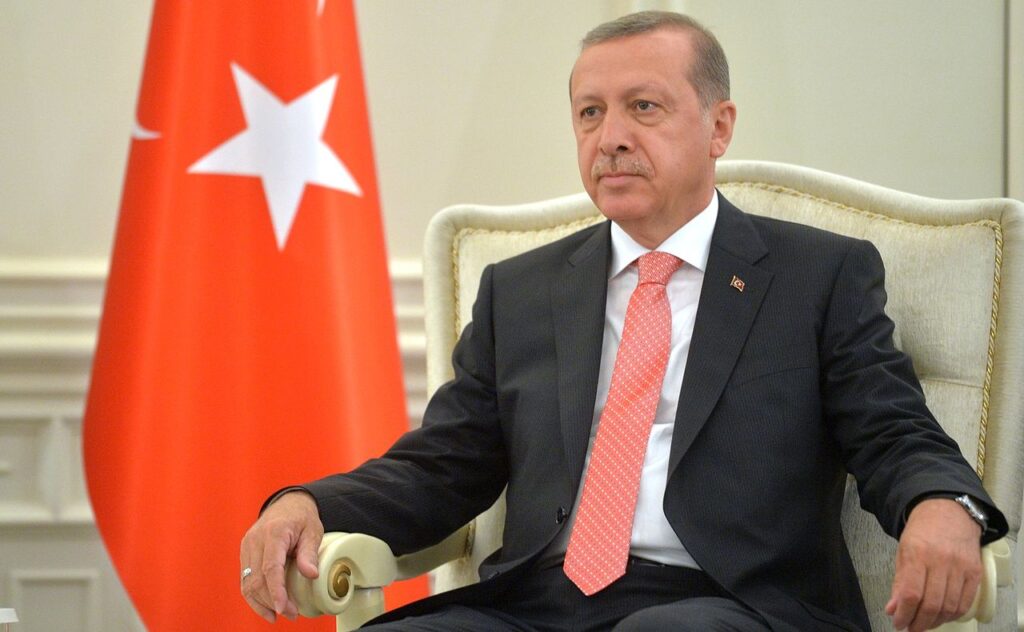Recep Tayyip Erdogan, aged 69, has emerged victorious in a carefully contested election that, at one level, posed a possible problem to his longstanding tenure as Turkey’s president. With over 99 % of poll bins counted, he secured the runoff vote with a margin of 52 % to 48 %, as formally reported by Turkey’s Supreme Election Council. This consequence ensures one other five-year time period for Erdogan, who has exerted important affect on his nation’s political panorama over the previous 20 years.
On Might 28, 2023, President Recep Tayyip Erdogan secured a second and last time period in Turkey’s presidential election. Regardless of the nation’s financial challenges, the impression of a lethal earthquake earlier within the 12 months, and extended hypothesis about his potential defeat, Erdogan emerged victorious with a vote share almost equivalent to that of the 2018 election. His major competitor, Kemal Kilicdaroglu, loved the help of an unprecedented alliance, however a number of elements contributed to Erdogan’s success. One distinguished issue is the enduring significance of id politics in Turkey, with a substantial emphasis on conservative values. The conservative voting bloc stays the most important within the nation, and the bulk inside this group specific belief in Erdogan’s management and functionality to steer the nation successfully.
Moreover, the result might be attributed to Kilicdaroglu’s lack of ability to construct a cohesive platform and current an interesting electoral marketing campaign, thereby failing to resonate with a broad base of voters. Moreover, President Erdogan’s victory within the election underscores the continued significance of id politics, the energy of the conservative voting bloc, and the prevailing perception in Erdogan’s competence amongst a good portion of the inhabitants, all contributing to his profitable bid for one more time period in workplace.
Since 2011, Turkey’s armed providers have skilled a noteworthy growth of their abroad and expeditionary warfighting capabilities, indicating a considerable change of their mission set and mindset after a long time of emphasizing inner safety. This transformation has been marked by a shift from inward-focused operations to a extra outward and globally engaged method.
From the attitude of Washington, Turkey’s augmented international army footprint and enhanced power projection capabilities current a twin perspective. On one hand, having an ally with the capability to discourage aggression, foster safety establishments, and fight terrorism in areas like Libya, Syria, Ukraine, and Somalia proves advantageous for each the USA and NATO. The flexibility of Turkey to play such a task in varied areas aligns with the broader objectives of the US and the alliance in selling stability and counterterrorism efforts.
Nonetheless, it’s vital to acknowledge that Turkey’s expanded army involvement abroad also can current challenges and complexities. Completely different political contexts and pursuits within the areas the place Turkey operates would possibly often result in divergent views and actions between Turkey and its allies. In consequence, sustaining efficient coordination and alignment of goals turns into essential to making sure the general success of shared safety objectives.
Turkey’s heightened expeditionary capabilities have each constructive and difficult points for the US and NATO. Whereas it gives the benefit of a succesful ally in essential areas, it additionally necessitates cautious navigation and coordination to handle potential divergences in approaches and pursuits.
Presently, Turkey boasts the second-largest army inside NATO, surpassed solely by the USA, and is actively engaged in a number of theaters worldwide. These theaters embrace Syria, Iraq, the South Caucasus, Libya, and the Japanese Mediterranean. The first goal of Turkey’s army involvement in these areas is both to affect the result of ongoing disputes or to result in modifications within the present order. This notable shift in Turkey’s overseas coverage signifies a big departure from its prior choice for a extra passive method that favored sustaining the established order and avoiding intensive abroad engagements.
The latest shift in Turkey’s overseas coverage reveals a newfound assertiveness and willingness to actively take part in shaping outcomes in regional conflicts and disputes. This assertive stance marks a big departure from its traditionally cautious and fewer interventionist method. The choice to have interaction in abroad army operations demonstrates Turkey’s rising want to play a extra energetic position in regional affairs and assert its affect in areas of strategic significance. This alteration in Turkey’s overseas coverage stance additionally displays the evolving regional dynamics and challenges it faces. The nation’s army involvement in varied theaters is probably going pushed by safety issues, regional energy dynamics, and the aspiration to guard its pursuits and affect outcomes that align with its strategic goals.
Therefore, Turkey’s present army engagement in several theaters signifies a notable shift from its earlier choice for a extra passive overseas coverage. With an energetic position in shaping regional outcomes and defending its pursuits, Turkey’s evolving overseas coverage method displays the altering dynamics and challenges within the areas it operates.
Turkey’s economic system expanded quickly throughout President Erdogan’s first years in workplace. Nonetheless, in recent times, he has defied standard financial data by attributing extreme inflation to excessive borrowing prices and making an attempt to encourage financial growth. The Turkish forex has misplaced greater than 80% of its worth within the final 5 years, and overseas funding has plummeted. Turks are more and more making an attempt to withdraw overseas forex from native banks. Furthermore, Turkey had hit by an even bigger earthquake which made the international locations individuals extra weak.
The Turkish Enterprise and Enterprise Confederation estimates that the quake will price the nation as much as $84.1 billion, whereas a authorities official estimates that the complete price might be between $10 and $50 billion. In line with the Turkish Enterprise and Enterprise Confederation, the bills embrace $70.8 billion in housing repairs, $10.4 billion in misplaced nationwide earnings, and $2.9 billion in misplaced working days. Furthermore, media sources, the catastrophe destroyed over 8,000 buildings and broken provide chain infrastructure reminiscent of roads and the Iskenderun harbor. The area served as an industrial and maritime transportation hub, accounting for 9% of Turkey’s financial output. Moreover, In line with a overseas ministry announcement, Afghanistan’s Taliban administration would ship $166,000 in support to Turkey and Syria to help within the response to this week’s catastrophic magnitude 7.8 earthquake.
In line with a state information outlet, the UAE has fashioned a $10 billion fund to help investments in Turkey. Furthermore, the information outlet WAM, the fund would concentrate on strategic investments, notably within the power and well being sectors. From many international locations authorities eagerly wished to assist the nation as a result of earth quake made the residents devastated. Greater than 1,400 emergency response staff from over twenty NATO Allies and companions, together with invitees Finland and Sweden, are deploying to Turkey to help within the response to the horrible earthquakes that devastated the nation on February 6. Presently, about 53,000 Turkish first responders are on the bottom.
In conclusion, Turkey’s political panorama has witnessed important modifications with President Recep Tayyip Erdogan securing one other time period in a carefully contested election. His victory, mixed with the nation’s increasing army engagement in varied theaters, displays a departure from its earlier overseas coverage method. Whereas the nation faces financial challenges and the aftermath of devastating earthquakes, the worldwide help and help from varied nations and organizations exhibit solidarity in occasions of disaster. Turkey’s capability to beat these challenges and chart a course ahead might be essential in shaping its future on each home and worldwide fronts.
[Image: Kremlin.ru [CC BY 4.0], by way of Wikimedia Commons]Mahmodul Hasan Shesheir is a analysis assistant on the BRAC James P Grant College of Public Well being, Dhaka, Bangladesh. The views and opinions expressed on this article are these of the writer.

